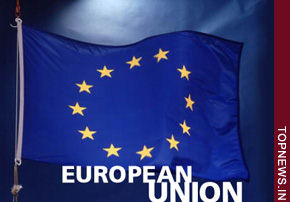Brussels to give verdicts on Turkey, Balkans, Russia
 Brussels - The European Union's executive body is set Wednesday to give its verdict on the progress Turkey and a number of Balkan states have made towards joining the union, and to sum up the state of the bloc's relations with Russia.
Brussels - The European Union's executive body is set Wednesday to give its verdict on the progress Turkey and a number of Balkan states have made towards joining the union, and to sum up the state of the bloc's relations with Russia.
"We want to see Turkey focus truly and with determination on its European journey, with a clear sense of direction. Preparing for future membership means creating new opportunities for citizens in a more open society," EU Enlargement Commissioner Olli Rehn said in a speech Tuesday.
Wednesday's regular meeting of the European Commission is set to focus on a series of reports covering the progress Turkey, Croatia and Macedonia - the three current official candidates for EU membership - have made towards joining the bloc in the last year.
While no official details have yet been published, unofficial reports suggest that Croatia will for the first time be given a timetable for concluding accession negotiations in
2009, with a view to joining the bloc in 2011.
Turkey, meanwhile, is expected to receive a call for more reforms in the wake of the summer's constitutional crisis.
The commission paper is also expected to highlight its role as a key energy-transit route on the day EU Energy Commissioner Andris Piebalgs travels to Ankara for talks on gas transit pipelines.
Macedonia is set to face criticism for its ongoing problems with political violence, the BBC reported.
The commission is also set to comment on the countries of the former Yugoslavia which have not yet become official candidates: Albania, Bosnia-Herzegovina, Montenegro, Serbia and Kosovo.
Despite the ongoing dispute over Kosovo's status, Serbia is tipped to be told that it could gain candidate status in 2009 - a response to Belgrade's capture of war-crimes suspect Radovan Karadzic in July.
The commission meeting is also scheduled to approve a short study of the EU's overall relationship with Russia, which EU leaders commissioned in the wake of August's Georgian-Russian war.
While the paper is still to be finalized, diplomatic sources in Brussels told Deutsche Presse-Agentur dpa that early drafts were notable for the soft language which they used on key disputes such as the Georgian war and the row over Kosovo's status. (dpa)